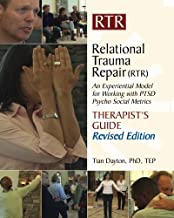Relational Disorder
The proposed new diagnosis defines a relational disorder as “persistent and painful patterns of feelings, behaviors, and perceptions” among two or more people in an important personal relationship, such a husband and wife, or a parent and children.
Cluster Number:
Wiki Number: PW184
Diagnosis: Relational Disorder
US Patients:
World Patients:
Sex Ratio:
Age Onset:
Brain Area:
Symptoms: The disorder depends on two or more people interactively causing the difficulties. “persistent and painful patterns of feelings
Progression: behaviors and perceptions” in couples or adult couples either with their parents or with their children.
Causes: Marriages with violence between the couple; parental child abuse-often after parental neglect.
Medications:
Therapies:
Youtube Video: Relational Disorders:
Can Relationships Have Mental Illness? – Truth About Relational Disorders
Amazon or Library Book: Relational Trauma Repair
Click the book to link or order from Amazon.

